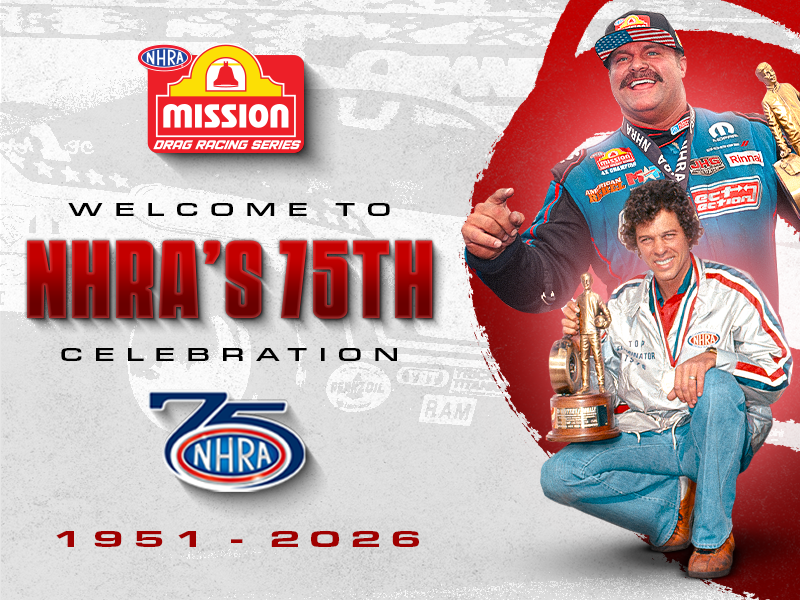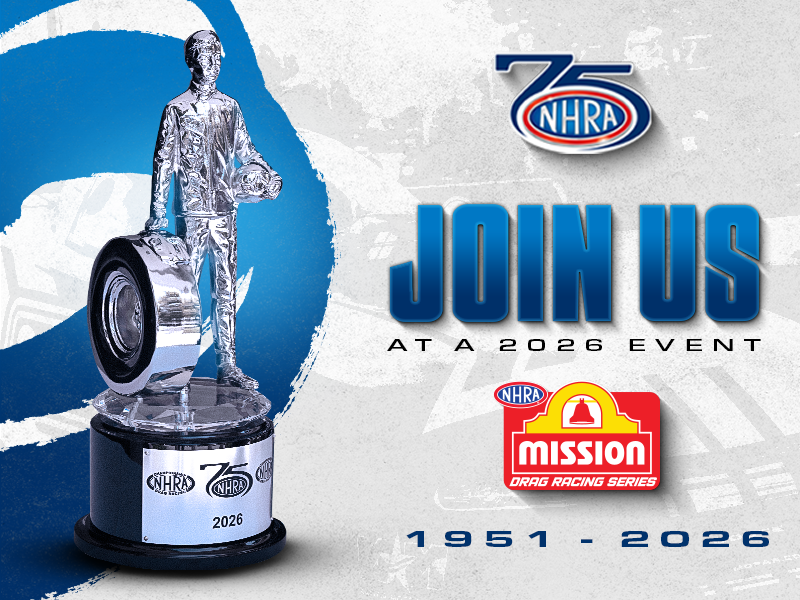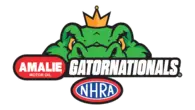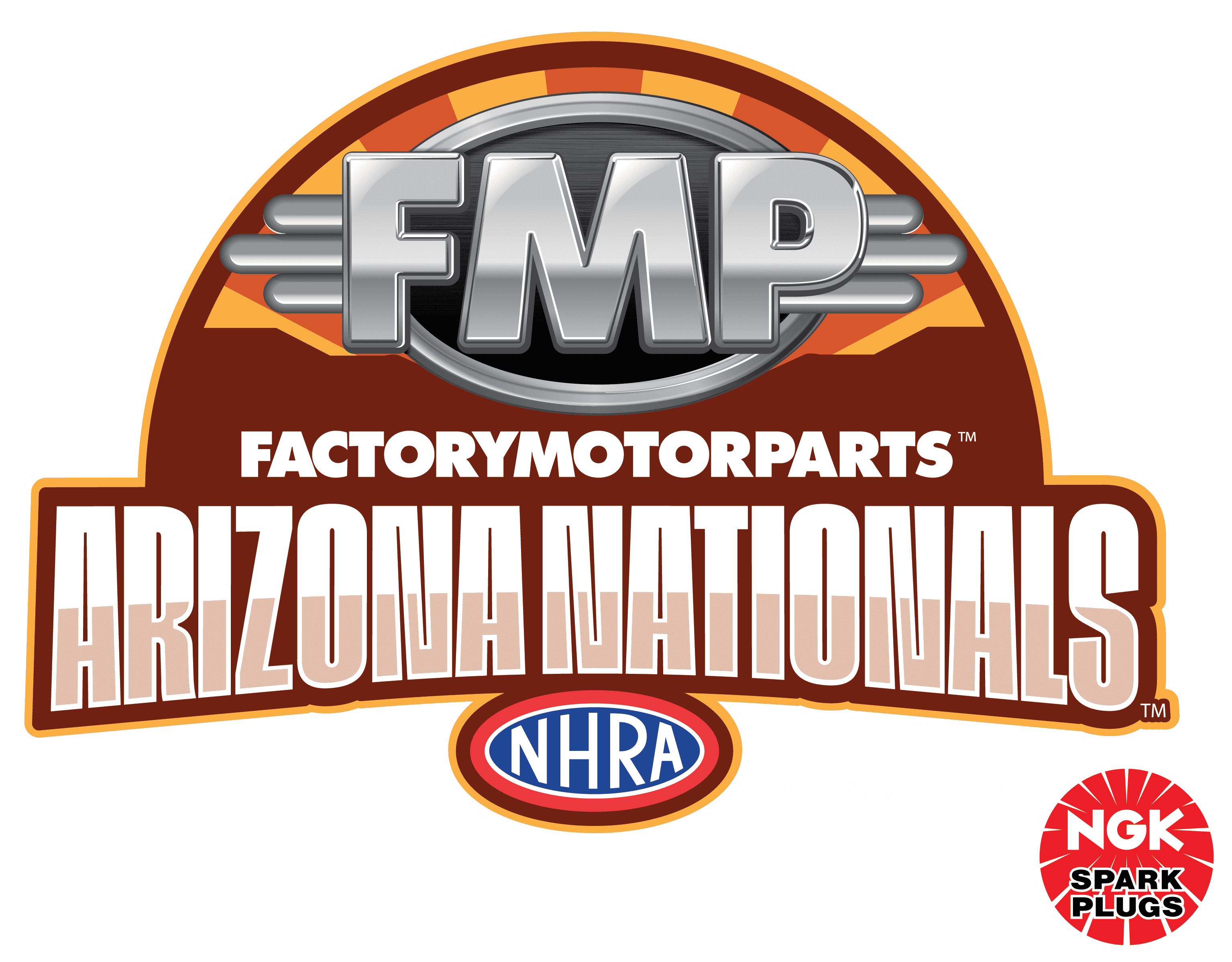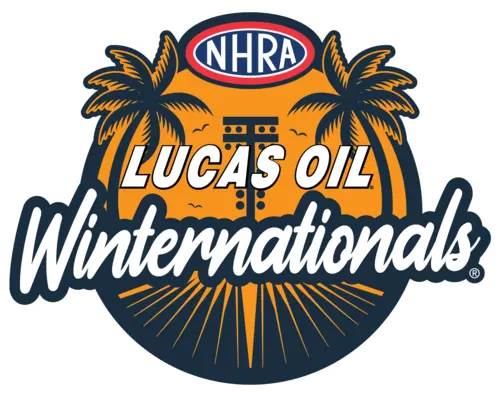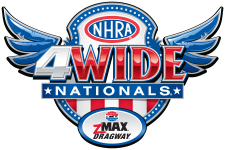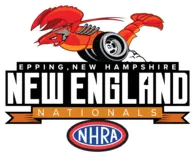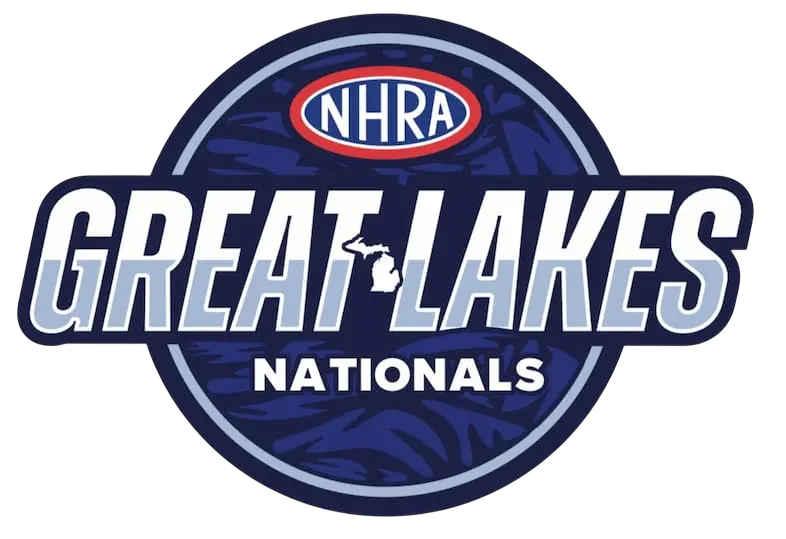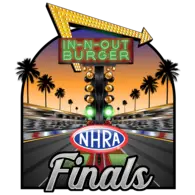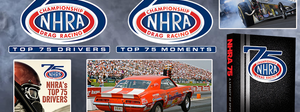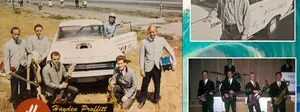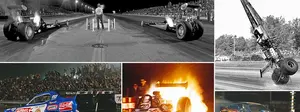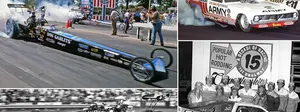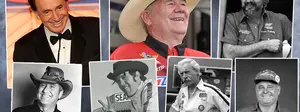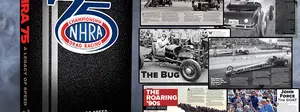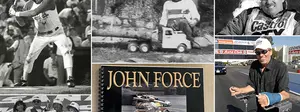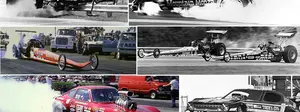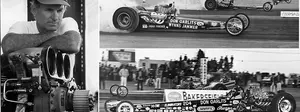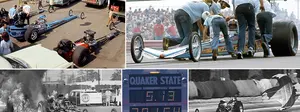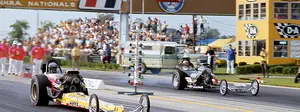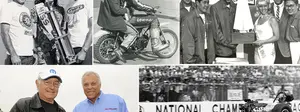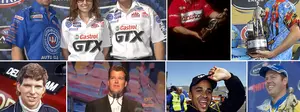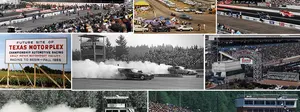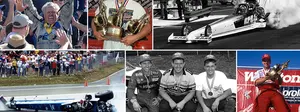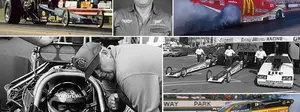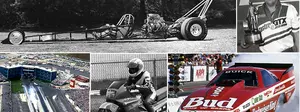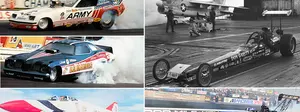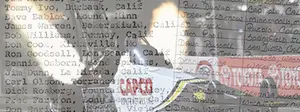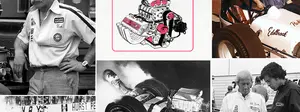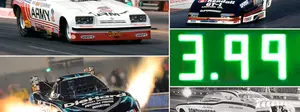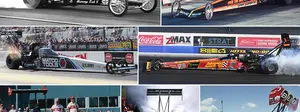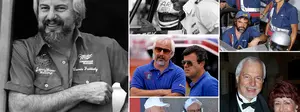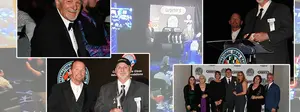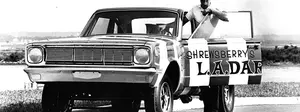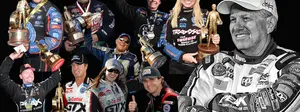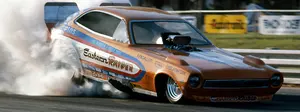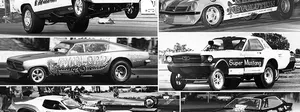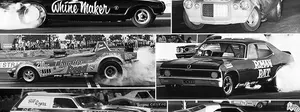Not just a nickname: 'Famous Amos' Satterlee was that and much more

Someone famous once told me that the best nicknames were the ones that someone else came up with for you, that's it's embarassing to give yourself a bragging kind of nickname, and it’s hard to dispute that. Most of the best drag racing nicknames have come from a third party. NHRA announcer Bernie Partridge crowned Don Garlits “Big Daddy” because he had his daughters with him at the 1962 Nationals at Indy (yet it ended up more symbolic of his status in the class). Crewman Joel Purcell hung “the Snake” sobriquet on Don Prudhomme around the same time, back in the Greer-Black-Prudhomme era, because of his quick reactions, and nickname maestro Ed Donovan went all Jungle Book and came up with Tom McEwen as “the Mongoose” to counter "the Snake." I can't imagine Garlits hailing himself "Big Daddy" or "Snake" uncoiling that nickname on his own, and, let's face it, Bruce Springsteen didn't proclaim himself "the Boss" either; his band did.
People called innovative Top Fuel racer Pete Robinson “Sneaky” because, well, he was. And Frank Bradley didn’t start calling himself “the Beard”; someone else put that on him because, well, he had a good one. And people may have started calling Amos Satterlee “Famous Amos” because it rhymed, but, honestly, like Bradley’s beard, he wore the name well.

Satterlee was famous through six decades, and most of it was because of what he could do with a wrench. Sure, he drove in the early days, wheeling some fast coupes and early dragsters in the late 1950s and early 1960s, but he became famous for building fast engines that set records and won championships on asphalt, water, and even sand. And, of course, building horsepower is only half the story; getting it to work on the chosen surface is where the magic happens, and Satterlee was truly a magician.
According to his nephew, Harold Satterlee, who was kind enough to reach out to me late last week, “Famous Amos” passed away last Thursday night from age-related complications. He was 88 and had been in hospice the last couple of weeks.
I did a search of Satterlee’s name on DragList and it returned nearly 90 cars with which he was associated. He worked with and tuned for the greats, including Frank Cannon and Art Chrisman on the groundbreaking Hustler series of early dragsters, on early Funny Cars with Jack Chrisman and Ed Schartman, and with Mickey Thompson and Danny Ongais on the fabled blue ’69 Mustang that dominated Funny Car racing in 1969, and tuned anything nitro related for the five decades.

While people tend to think of Satterlee as a Southern California product, he actually grew up on the family farm in Adrian, Mo., south of Kansas City with brothers Paul, William, and Bobby and sisters Jesse and Marie, all of whom have passed. William (Harold’s father) worked in the Passenger Paint division at Ford’s Kansas City assembly plant, and Amos loved his Fords, especially that crazy SOHC 427 that powered everything from Jack Chrisman’s Comet Cyclone to John Aleman’s Sheepherder Fuel Altered, which was driven in the mid- to late-1970s by a lot of guys, most notably Henry Harrison, with whom I most closely align Satterlee’s name from my formulative years as a Funny Car fan in the early 1970s. That's Aleman, left, Satterlee, and the famed SOHC engine at right.
Satterlee turned Don Tate’s so-so Funny Car and his rookie driver Craig Epperly to an upset win at the 1981 Springnationals (Tate had some moxie in naming the car Super Star before it ever was) and was always there to lend a helping hand to new or struggling Funny Car or Fuel Altered teams like those of “Jam-Air John” Martin, Brad Tuttle, Ray Higley, Dale Tuter, and Ron Fassl, whose Funny Car and Fuel Altered both benefited from Satterlee’s old-school skills.

Satterlee’s deft touch also translated to water where he built and tuned the engines that carried Lou and Marianne Osman’s St. Louis-based Speed Sports Top Fuel Hydro and driver John Haas to Lucas Oil Series championships in 2005, 2007, 2008, 2009, and 2010.
I also had heard that Satterlee had won multiple National Sand Drag Association championships in its Top Fuel class with driver/owner Scott Whipple and his Canidae-sponsored team, but I had no idea of his dominance on the 300-foot sand course until I reached out to Tom Bray, Editor of NationalSandDragNews.com, who generously shared with me his notes and the accompanying photo.

“My stats begin with the 2007 season. Scott and Amos teamed up to run Top Fuel in 2002," he said. "I don't have an exact figure of event wins in that 2002-2006 time frame, roughly around a dozen with several big wins in Primm, Nev., and they held the E.T. record in most of that era.
“Scott and Amos won four straight NSDA Top Fuel championships from 2007-2010; 2010 was the last season they chased points. They set the Top Fuel e.t. world record in April 2010 at Lake Elsinore, Calif., with a 2.221 ET. That record held all the way until October 2015. That was at least the fourth time they had lowered the record.
“Here’s a crazy stat that I didn't realize until now: Scott and Amos won the final 10 events that they entered with the Canidae Top Fuel dragster, from September 2009 through May 2012, which totaled 21 round wins in a row. In total, from 2007-2012, they won 19 of 27 events entered. Complete domination.
“Amos was always such a great guy to be around at the races, we will certainly miss him.“
![]()

Although Satterlee is best known as an engine builder and tuner, he did drive, starting in 1958 with a 296-cid flathead-powered ’34 Ford three-window B/A coupe that ran 12.20s on gas and 11s on nitro and a later five-window coupe that won Top Eliminator at Lions, beating Tommy Ivo's street roadster, thanks to being powered by one of Jack Chrisman's Chrysler engines. He later bought one of the Chrisman dragsters and ran low 10s in it and also wheeled Shig Shimizu’s Shig's Flying A injected gas dragster, a car in which he was practically undefeated. In the photo at right from an article on Satterlee in the April 1968 issue of Drag Strip Magazine titled (appropriately) "Profile of a pioneer," that's Shimizu at left and partner George Lesesseo at right with Satterlee in the saddle. Behind the wheel of the ex-Art Chrisman Hustler III, powered by an Enderle-injected 331, he made his quickest and fastest run at 8.40, 186 mph.
After leaving the cockpit, one of Satterlee's greatest early moments was tuning the Chrisman & Cannon Hustler V to a reported 200-mph pass at Lions Dragstrip in July 1964. Garlits, of course, is generally credited with making the first 200-mph run, a month later in New Jersey, but Satterlee disputed that. When Satterlee was named a NHRA California Hot Rod Reunion honoree in 2004, he made no bones about beating Garlits. "We did it before he did,” he said. “Garlits claims it. I hate to embarrass the old man, but facts are facts. Frank Cannon deserves the recognition.”

As Funny Cars came into existence in the mid-1960s, Satterlee was there, too. He worked on Jack Chrisman’s Comet Cyclone and their accomplishments were triumphed in internal Ford publications because the Transmission and Chassis Division where Satterlee’s brother worked developed the Merc-o-Matic transmission and the Autolite division built the shocks for the car. Once Satterlee put a blower on Chrisman's car they broke nearly every strip top speed record and won major events from coast to coast, running in the 8.70s at 188 mph before the car caught fire and was destroyed at New York National Speedway in 1966.
After the demise of the Chrisman car, Satterlee moved to California to work with Ed Pink then in August teamed up with Schartman, but also found the time to tune Don Johnson's Beachcomber dragster to victory at the Mickey Thompson 200-mph Club Meet.
As with Jack Chrisman, Schartman started out with an injected 427 SOHC engine in 1967 before Satterlee convinced him that while injection was nice he’d probably rather be blown, and together they won the huge Manufacturer’s Championship at Orange County.

The ’68 and ’69 seasons with the Thompson/Ongias team were career years, with wins across the country with their revolutionary Mustang that included big scores the NHRA Springnationals in Dallas (where McEwen shelled a rear end on the starting line in the final) and the Nationals in Indy (where Richard Siroonian wasted a great 7.24 performance in “Big John” Mazmanian's candy-apple 'Cuda with a final-round red-light), and had there been a points-based championship back then, they undoubtedly would have won it. In the photo at right, Satterlee, Ongais, chassis builder John Buttera, and team owner Thompson enjoy the spoils of victory after winning Funny Car at the 1969 March Meet.

The crinkled, blurry, and well-worn Polaroid photo at right is a keepsake for nephew Harold from when the Thompson/Ongais team stayed at their house near Kansas City on a sweep through the Midwest.
“This was the class car hauler of that era,” he remembers fondly. “Uncle Amos and Danny Ongais stayed at our house that weekend. I was proud to surrender my bedroom for Danny to stay in. They were here to be half of the headliner for a regional event, three runs against Don Biggers' Plymouth. Dad's 1965 Galaxy 500 was the tow car. I got to be in the back seat and was thrilled. The Mach 1 had won the first two runs. I could watch Don Biggers at the front window of the announcer's booth giving the talk up for the last run. ‘Nobody, and I mean nobody’ beats Don Biggers' Plymouth three times in a row.’ We did. I enjoyed leaning out the window of Dad's car waving at the crowd as we went down to retrieve the Mach 1.
“That year Amos won the Mechanic of the Year honor. Dad had a magazine with a full-page ad for SK tools: ‘The Great Ones In Dallas, Amos Satterlee And SK Tools.’ It had a picture with Mickey Thompson's Mach 1 in the background and Amos getting a kiss from Dandy, Miss SK."

In the 1970s, “Famous Amos” tuned for the likes of Gas Ronda, Charlie Allen, Dean LaPole, Gary Burgin, and, of course, Harrison, on a number of his cars. Harrison obviously appreciated Satterlee's work and probably set some kind of still-standing record for crew chief acknowledgement on the side of a race car; as big, if not bigger, than his own name. Yet, as technology grew and the cars became more sophisticated and timer-controlled, Satterlee’s interest began to wane, according to his nephew.
“He did not have much enthusiasm for automation in drag racing: Data logging, computer engine control, multi-stage clutch pre-programmed by setting dip switches before the run," Harold told me. "It may have brought up the performance, but it takes the personal part out of the equation. Tuning with your ears, by feel and skill, reading the spark plugs., controlling the throttle and clutch with your mind and feet. If you offered him a choice of a ride in an advanced jet fighter or a Stearman biplane, he would have chosen the Stearman. The feel of the engine, the wind in your face, the feel of what it was doing through the stick and rudder.”
Because of this, Satterlee ended up in the Nostalgia Racing scene, where he again generously spread his knowledge around in his final years.

I won’t go as far as to say that his career has been understated -– after all, to many of us he was always “famous” –- but looking back over this column and the people he tuned for and the championships he helped win, I can’t help but think that he didn’t get all of the attention he should have.
He leaves behind his beloved wife of 70 (!) years, Armida (better known to people as “Billie”) and children Amos III, Rita, Suzie, and Jennifer; son Larry predeceased him.
And, of course, nephew William, who shared this very telling final comment from his uncle:
“Uncle Amos used to say about other types of racing, ‘They just go around in circles and when it is over they end up in the same place. Drag racers, when it's done, we went somewhere.’ “
Amos Satterlee did go somewhere -- somewhere very big -- in an amazing racing career, and left behind a legacy for us all to remember and admire.
Big thanks to Harold Satterlee for providing me photos, links, and magazine articles of his uncle and answering my many questions, and to longtime "Famous Amos" friend (and Fuel Altered junkie) Richard Shute of Auto Imagery for the racing photos.
Phil Burgess can reached at pburgess@nhra.com



